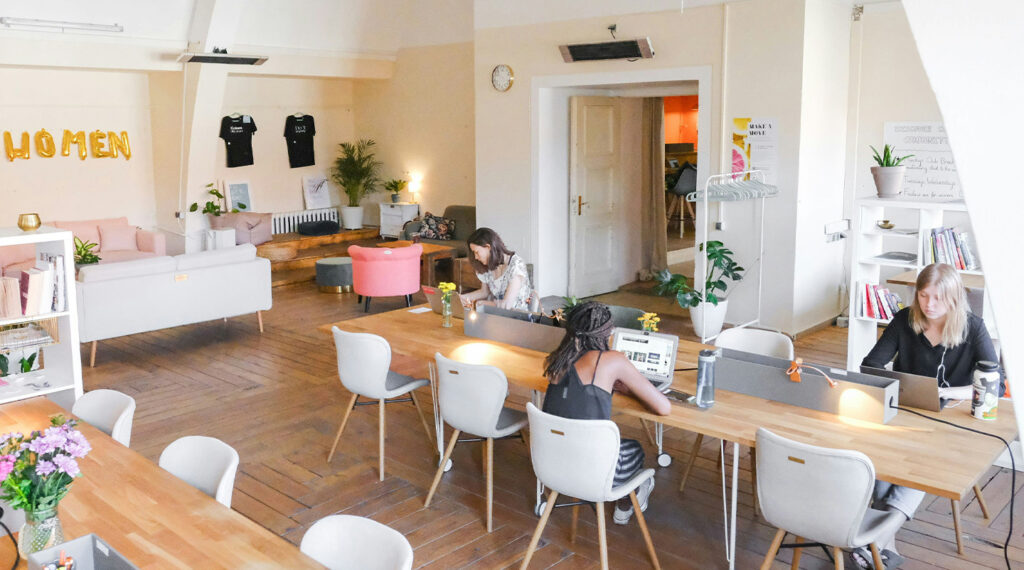What happens when you fund the funders: Surprising lessons

When we first stepped into our roles at Fenomenal Funds, a feminist funder collaborative supporting women’s funds, we entered with curiosity and uncertainty. Phoebe’s background in feminist programming, research, and experience on a women’s fund board provided a foundation, while Shama’s focus as a feminist activist-scholar lay in understanding philanthropy’s broader politics. Despite our diverse experiences, we found ourselves championing a cause we weren’t entirely sure we could defend with full confidence.
The questions lingered: “Why fund women’s funds? Isn’t that indirect?” Five years ago, research on the feminist funding landscape felt sparse beyond AWID and Prospera’s work. We often lacked concrete evidence of impact. It was a complex position – advocating for something we believed in, while contending with constant questioning. This journey would lead us to uncover the power and resilience of women’s funds.
The vulnerability that changed everything
In our collaborative labs and learning conversations, real stories emerged – accounts not found in grant reports. These weren’t statistics – they were narratives of movements rebuilding communities, grassroots changemakers finding strength, and organisations surviving through collective solidarity.
A conversation with executive directors from FemFund in Poland, Women’s Fund Armenia, and Women’s Fund in Georgia about Feminist Healing Spaces collaboration revealed a critical insight often overlooked by broader funders: movements were breaking down not only from lack of resources, but from trauma and burnout attributed to both internal and external highly charged and stressed situations, including shrinking civic space, wars and conflicts. They pioneered feminist healing as essential infrastructure to sustain those driving social transformation.
Learning to see what others missed
Watching this collaborative and others focused on collective care taught us about sustainable change. While traditional funders debated metrics, these funds created autonomous sanctuaries where activists could process trauma and build solidarity for sustained resistance.
They provided both financial and non-financial support rooted in collective care, recognising that activist sustainability required addressing the whole person. In a context of backlash against gender justice, they were building resilience infrastructure for long-term survival.
Organisations in healing and collective care programs reported renewed energy, stronger internal solidarity, and increased capacity to respond to crises. More importantly, they showed that women’s funds don’t just distribute money – they listen deeply and anticipate needs before others. Effective philanthropy, they taught us, requires humility to follow movement leadership.
Stories that validated our assumptions
Meeting Doria Feminist Fund changed how we understood courage. When they established the first feminist fund in the SWANA region in 2021, they had no guaranteed funding. For months, staff prioritised movement service over salaries.
Yet their impact was extraordinary. Doria was building a feminist ecosystem for emerging SWANA movements. One founder said: “We are not just a fund. We are a lifeline, a source of hope for so many who have been overlooked.”
Working with Fonds pour les Femmes Congolaises (FFC) revealed systemic barriers to global funding and engagement we hadn’t fully recognised. Operating in non-English contexts, women’s funds from the Global South faced compounded challenges often invisible to Global North funders – poor internet, need for interpretation, tech breakdowns and visa restrictions that hindered access and participation.
Still, FFC’s commitment to movements in the DRC was unwavering. Despite ongoing insecurity and infrastructural challenges, they developed innovative approaches to reach women leaders and groups driving social change. Beyond grantmaking, their focus on knowledge sharing – even under threat – created sustainable conditions for grassroots independence.
Questioning partnership assumptions
Repeatedly, we met exhausted women’s fund leaders. Over time, they revealed the toll of supporting movements while constantly proving their worth to funders.
This pattern disturbed us. Were we contributing to their exhaustion by expecting performance over trust? Were we extracting under the guise of partnership?
These questions pushed us to always examine our approach through a power lens. We slowed down to understand local contexts and engaged more relationally. We involved women’s funds in decision-making and provided flexible, long-term funding to match activists’ evolving needs.
Fenomenal Funds’ collaborative design reflected this evolution, with women’s funds shaping funding priorities instead of adapting to donor agendas.
Why this work matters to us now
Through the On the Right Track Initiative (OTRT), a cross-regional collaboration between 11 European and 8 Latin American funds, we witnessed the political analysis women’s funds bring to movements countering fundamentalisms. OTRT supported movements tracking regional commonalities and deepening cross-border commitment.
What moved us most was their refusal to moderate support for movements speaking difficult truths. Despite pressure, they backed those speaking truth in hostile climates – reminding us that intermediary funds and movement organisations need independent funding sources committed for the long haul.
The legacy that must continue
After five years, our data validates a critical hypothesis: resilient women’s funds are essential infrastructure for getting fit-for-purpose funding to grassroots organisations. Twelve of our 15 collaboration initiatives reported improved capability to meet partners’ needs, build responsive relationships, and develop context-specific solutions through collaboration.
The evidence became overwhelming: women’s funds consistently reached marginalised movements others couldn’t, responded quickly to crises, and identified emerging needs before they hit mainstream agendas.
But the impact of one-time investments is finite. Unless we scale and sustain support for these funds, we risk losing both infrastructure and the deep knowledge of what changemakers need.
An invitation to transformation
To fellow funders, we offer this invitation, born from personal transformation: Trust movement expertise and the women’s funds that serve them, even when their approaches challenge conventional wisdom. Question assumptions about who drives change and practice reflexivity in your practices. Invest in women’s funds not because it’s trendy, but because movements need infrastructure that understands both urgency and sustainability.
We’ve learned that meaningful philanthropy requires courage to follow movement leadership and a commitment to measure impact across time – not just grant cycles.
This journey convinced us: when we trust women’s funds with resources and partnership, we invest in a vision of justice that centres movement wisdom, honours lived experience, and builds power from the grassroots up.
Authors


